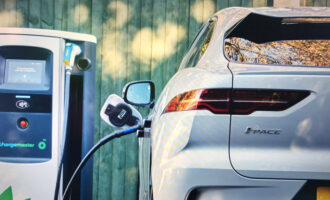Vivo Energy: At the heart of the African growth story
GDP Per Capita is a typical measure of the standard of living in a country. Divide the gross domestic product (GDP) of a region by its population and you have a measurement of a country’s economic output. In April 2018, the world’s average GDP per capita was USD 11.73 thousand according to the World Economic Outlook. Africa, a resource-rich continent and home to 1.2 billion people, is the poorest continent with USD 1.91 thousand.
However, economic activity is beginning to strengthen in Sub-Saharan Africa. Output growth rose to an estimated 2.6% in 2017 from a record-setting low of 1.5% in 2016. Regional growth is set to reach 3.7% by 2020. These World Bank figures reflect expectations of stable oil and metal prices, and expansion in global trade.
A multitude of favorable macro trends support progress in Africa including strong population growth, accelerating urbanization, increases in consumer spending and rapid vehicle adoption. By 2050, the United Nations predicts Africa’s population to have doubled and account for 65% of the global population increase; 56% will reside in urban areas (currently 40%). In the U.S., there are 814 vehicles for every 1,000 people. In Africa, it is a meagre 33, though vehicle compound annual growth rates (CAGR) of 7% from 2016 to 2021 are predicted.
These advantageous trends render the African market increasingly attractive to international corporations. A McKinsey Global Institute report from June 2010 suggested the rate of return on foreign investment in Africa is higher than in any other developing region. However, despite substantial new business opportunities, the authors suggested they were often overlooked by global companies due to higher risks.
This is certainly not the case for African oil trailblazer Vivo Energy. Vivo Energy was formed in December 2011 as Shell divested its African downstream business, and is wholly owned by Vitol, the world’s largest oil trader, and Helios, an Africa-focused private investment firm. Vivo Energy has held exclusive rights to sell Royal Dutch Shell’s fuels, lubricants and forecourt services across 15 African countries since its inception, leveraging encouraging market dynamics and the international renowned Shell brand to great effect.

The Vivo Group has invested USD 600 million expanding its retail network and now operates more than 1,800 service stations in Africa. Adjusted earnings before interest, tax, depreciation and amortization in 2017 were USD 376 million, up from USD 302 million the previous year.
Africa’s share in global energy consumption reached 3.3% in 2016 and the continent’s energy market continues to be propelled by fossil fuels. Non-fossil fuels delivered just 19% of total energy generation, compared with a global average of 34%. Oil is the standout performer, accounting for 42%, followed by gas (28%), coal (22%) and hydro (6%). Unreliable power supplies are likely to keep a lid on electrification, as a swelling volume of internal combustion engine vehicles hit African roads, playing right into the hands of Vivo Energy’s growth strategy.
Despite their evident successes, Vivo Energy has no plans to rest on their laurels. On May 4, the company floated on the London Stock Exchange. The first major listing of an African company since the global commodity slump weakened investor interest in the region valued Vivo Energy at nearly GBP 2 billion (USD 2.7 billion), the largest London IPO so far this year . The company believes the initial public offering (IPO) will provide improved access to capital markets, thereby strengthening the Group’s ability to execute its growth strategy successfully.
An IPO for the African venture comes at a time when Vivo’s parent company is reconsidering expansion plans in Europe. Vitol recently announced it had cancelled plans to float its European refining and downstream business, Varo Energy, in Amsterdam this year. The company cited poor market conditions for the reversal of an earlier decision. Attention appears firmly focused on Africa to satisfy immediate growth ambitions.
Vivo Energy is certainly at the heart of growth in Africa’s energy sector. The Group reported a CAGR of 6% from 2015-2017, and a whopping 25% Adjusted EBITDA CAGR during the same period. In December 2017, the company also announced two important acquisitions as it continues to expand and diversify its portfolio. The company has entered into an agreement to acquire Engen International Holdings (Mauritius) Limited, currently subject to regulatory approval, that will expand the organization’s footprint by a further 300 service stations and nine African countries.
The company is targeting the third quarter of 2018 to complete the transaction. In a statement, Ian Taylor, chairman and CEO of Vitol said: “Africa is a very important part of our business and we are committed to continuing to invest across the continent.” The purchase extends Vivo Energy’s presence to 24 African nations – which provides a “natural hedge against political turbulence, conflict and currency swings.”
The second notable transaction is the acquisition of half of Shell and Vivo Lubricants BV which sources, blends, packages and supplies Shell-branded lubricants from six African-based lube blending plants.
In the United Kingdom, the Vivo Group estimates there are 129 service stations per million people. In China, the figure is 71, whereas Africa currently only has 50 — leaving ample room for growth. Certainly, Vivo Energy appears well placed to exploit economic advancement in this fuel-hungry continent. The Group plans to add “approximately 400 more services stations by the end of 2022.”
Throughout the globe, the downstream segment has suffered from lower returns than the upstream segment, forced to adapt to increasing competition, challenging regulations and changing customer preferences. In addition to their efforts to increase their retail footprint and drive volume growth, Vivo Energy has also focused heavily on non-fuel offerings to deliver new revenue streams to the company — such as convenience stores, fast food restaurants and more. Continuing a perpetual focus on the importance of brand — the organization has aligned itself with leading international providers such as KFC, Burger King, Subway and Pizza Hut.
Further, in July 2017 Vivo announced a collaborative Pan-African partnership agreement with MESA, the exclusive licensee of MIDAS, to provide convenient maintenance services and multi-brand quick car servicing.
The importance of brand as a factor in a consumer’s choice of fuel cannot be overstated, particularly in African markets where counterfeit lubricants and contaminated fuel remain rampant. Shell is a globally respected brand, and Vivo Energy leverages Shell’s reputation for quality and performance across all its markets. The company estimates “service stations experience up to 25-30% volume uplifts upon rebranding to Shell.”
With such attractiveness for Shell’s brand in Africa, one question surely needs to be asked. Why has the oil major divested its assets in the region, licensing the Shell brand rather than adopting an integrated model? And does this signal a new business model for other major oil companies such as ExxonMobil, Total, BP and Chevron?
Certainly, Shell has significantly reduced its downstream footprint and investment, exiting several markets where it has a limited presence or little growth potential. It has announced a USD 30 billion divestment program between 2016 and 2018. Once this program is completed the company expects to continue divestments at an average rate of more than USD 5 billion until at least 2020.








